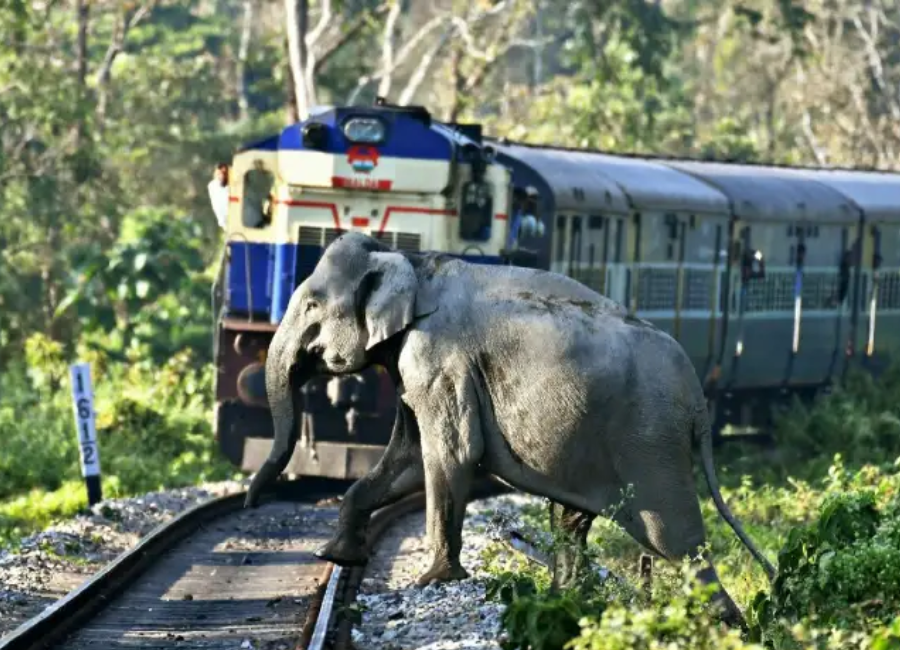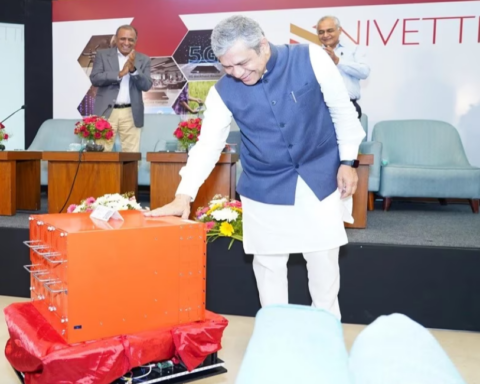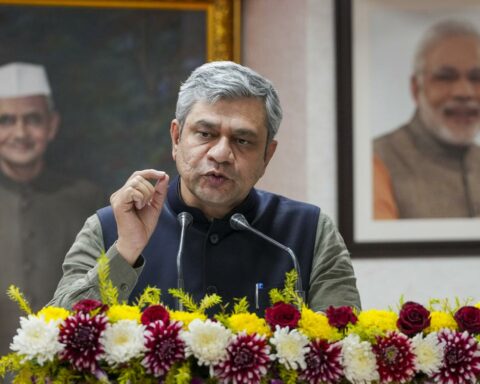Indian Railways has developed an AI-based software called ‘Gajraj’ to prevent collisions between trains and elephants. The indigenous software uses optical fiber cable (OFC) to detect and alert the locomotive pilot of any suspicious activity near or on the rail tracks.
The system was successfully tested in Assam and is set to be deployed across 700 km of elephant corridors in multiple states within the next eight months at an estimated cost of Rs 181 crore. ‘Gajraj’ utilizes AI and OFC to trigger alerts when questionable movement is detected within 200 meters of the tracks.
Vibrations caused by elephant movement alongside the rails create variations in the optical signals carried by the OFC, signaling a potential threat. The software can identify these signal disruptions as signs of movement and distinguish between elephants, other animals, and humans.

The system can also discern the type of movement and the number of animals present. Alerts are sent to the locomotive pilot, control room personnel, and the section station master upon detecting any movement. Railway Minister Ashwini Vaishnaw emphasized the urgency of the initiative, citing data that revealed 45 elephant fatalities due to train accidents in the past three years.
Plans are underway to install these AI-powered systems in West Bengal, Odisha, Jharkhand, Assam, Kerala, certain parts of Chhattisgarh, and Tamil Nadu. Vaishnaw also dismissed claims of reduced train operations post-Covid, stating that railway services resumed in December 2021 and normalized by July 2022.
He noted an increase in the number of daily train services compared to pre-pandemic levels. Additionally, the minister mentioned plans to add new railway tracks to the network, targeting 5,500 to 6,000 km this year.








